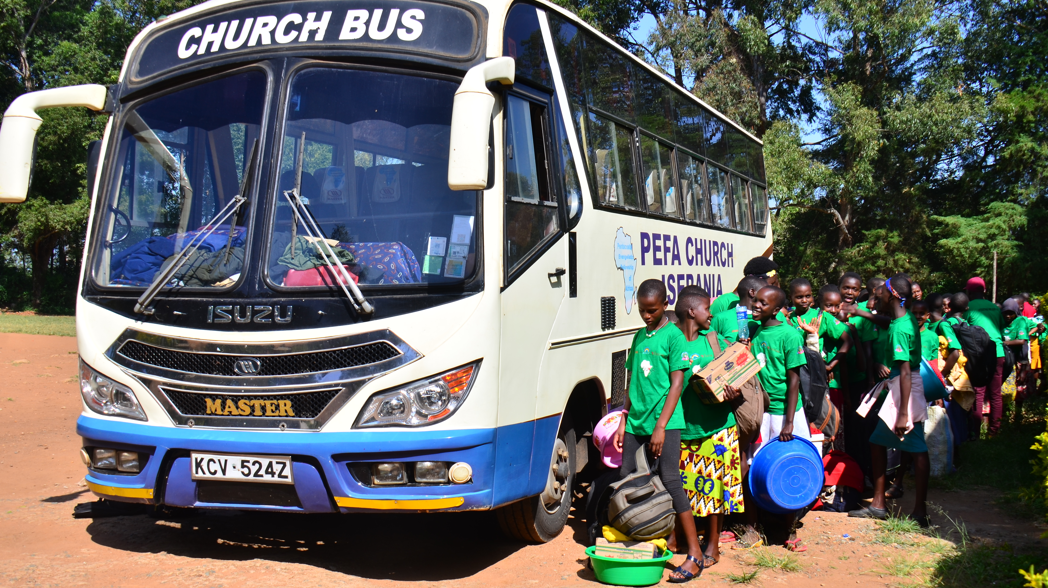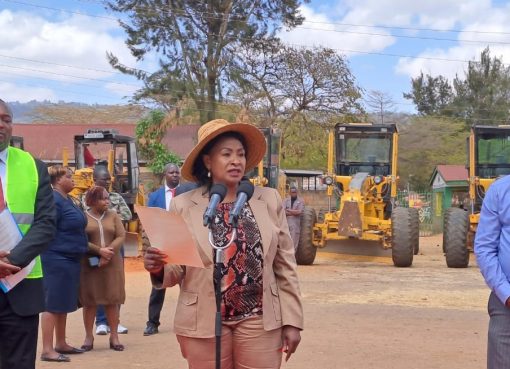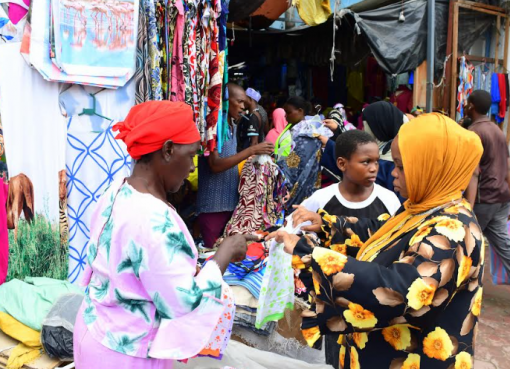Joy, cheers and happiness filled the atmosphere at the Taranganya Girls Boarding Primary School as a total of 184 girls who had been held for the last five weeks after escaping FGM were finally released to go back home.

Similar ecstatic moods were experienced at Kubweye Girls Secondary School where another 180 girls were harbored after escaping the vice.
Filled with a lot of vigour to meet their long missed family members, the girls could not hide their joy after getting a chance to meet with their loved ones and in addition to the fact that ‘cuttings’ were done away with and it was now safe to go home.
15-year-old Miriam Bokhe recounts that despite being visited by both her parents, going back home was the best feeling ever. This however does not beat the fact that the girls gained a lot during their time at the rescue camps.
“I have enjoyed my stay here. I have learnt a lot about the dangers of FGM and also gained other personal skills like baking cake and others,” says Miriam with a big smile.
At the Taranganya rescue centre, young girls got a rare opportunity to learn various skills that kept them busy hence making them feel less of being rescued from the unforgiving world they lived in.
In addition, they received sensitization on the dangers of FGM on girls and the future repercussions associated with the cut.
“We are now aware that once you are cut, you risk losing a lot of blood when giving birth and also can have difficulties at the same time,” narrates Alice Mwita, a 12-year-old girl from Kuria West.

However, in a number of cases girls were uncertain of the dynamics back home, how their parents would receive them, or if their parents would welcome them home as they had fled for rescue from female circumcision.
Elizabeth Nyawiri, a 15-year-old student from Guitembe secondary school, cried that her parents would not accept her back, nor would they take her back to school as she had gone against their wish.
Elizabeth had not spoken to her parents for the period she had been at the camp and she was worried that the situation would be welcome on her side.
She feels afraid to be taken back there and opted to go to the police instead, where her parents would be called over to sort the issue.
A number of girls received no contacts or any visits from home during the period at the rescue camps. This made them feel the anger or disappointment their parents must have been feeling for them, going against cultural norms.
Rescues camps facilitators also experienced tough times as some parents were often called to mock and ridicule their efforts towards eradicating the vice.
Rose Ghati, a facilitator at Taranganya Girls rescue centre, decried that some parents went ahead to ask for money in exchange for their kids staying in the centres.
Tobias Marwa of Zinduka program and a coordinator for the project warns that in extreme cases where parents reject their girls the law will be followed and such parent shall be reprimanded.
He said children below 18 years are under protection of the government and whenever there will be any act that goes against their safety or protection, the law will take its course.
As schools reopen, gender stakeholders are competing with time to reintegrate girls who escaped female genital mutilation back into their homes.
Back in December 2022, all four Kuria clans both in Kenya and Tanzania undertook female genital mutilation which saw a high number of girls escape to rescue centres to avert the ‘cut’.
James Omondi, the Kuria West sub-county children officer said that they have contacted the parents of the girls and the community to see that the girls are moved back to their families to be able to go to school.
“So far circumcision process is dying down after almost six weeks of school holidays and there is fear of underground exercise going on, we are checking on this before they are integrated back,” Omondi said.
He said already 14 Tanzanian girls who were in rescue centres after crossing over to the country to escape the ‘cut’ were taken to the immigration department and re-integrated back with help of security, government and gender activists across the border.
“While in Kenya schools are yet to open, across the border schools have re-opened for the first term and we have been liaising with our counterparts from across the border to end the vice,” Omondi said.
Mabera Deputy County Commissioner Miss Joy Wambua said that she had been working hand in hand with chiefs in the area to ensure the safety of these girls.
She added that parents had signed a declaration form to support their agreement on not causing any harm to the girls, no FGM or physical abuse on them when they escape to rescue centres for safety.
Kuria West police boss Cleti Kimaiyo said they will still be on alert and trail rescued girls as they go back to their families and will still work hard on continuing arrests.
“While we only arrested parents and guardians we are still on hot pursuit of circumcisers who have been moving across the border and we will bring them to justice,” Kimaiyo said.
Migori county gender activists have called on the building of a rescue centre among the minority Kuria community as over 500 girls have escaped female genital mutilation during the festive season.
Benter Odhiambo, the coordinator for Micontrap-Kenya said a standard rescue centre should have a police post, a hospital, a counselling centre and schools, infrastructure that is still lacking both in Kenya and Tanzania.
Activists have called on the police and judicial system to fast-track prosecution and judgement for cases of those that have been arrested on accounts of FGM to serve as an example to those planning to conduct the act now and in the future.
By Polycarp Ochieng and George Agimba





